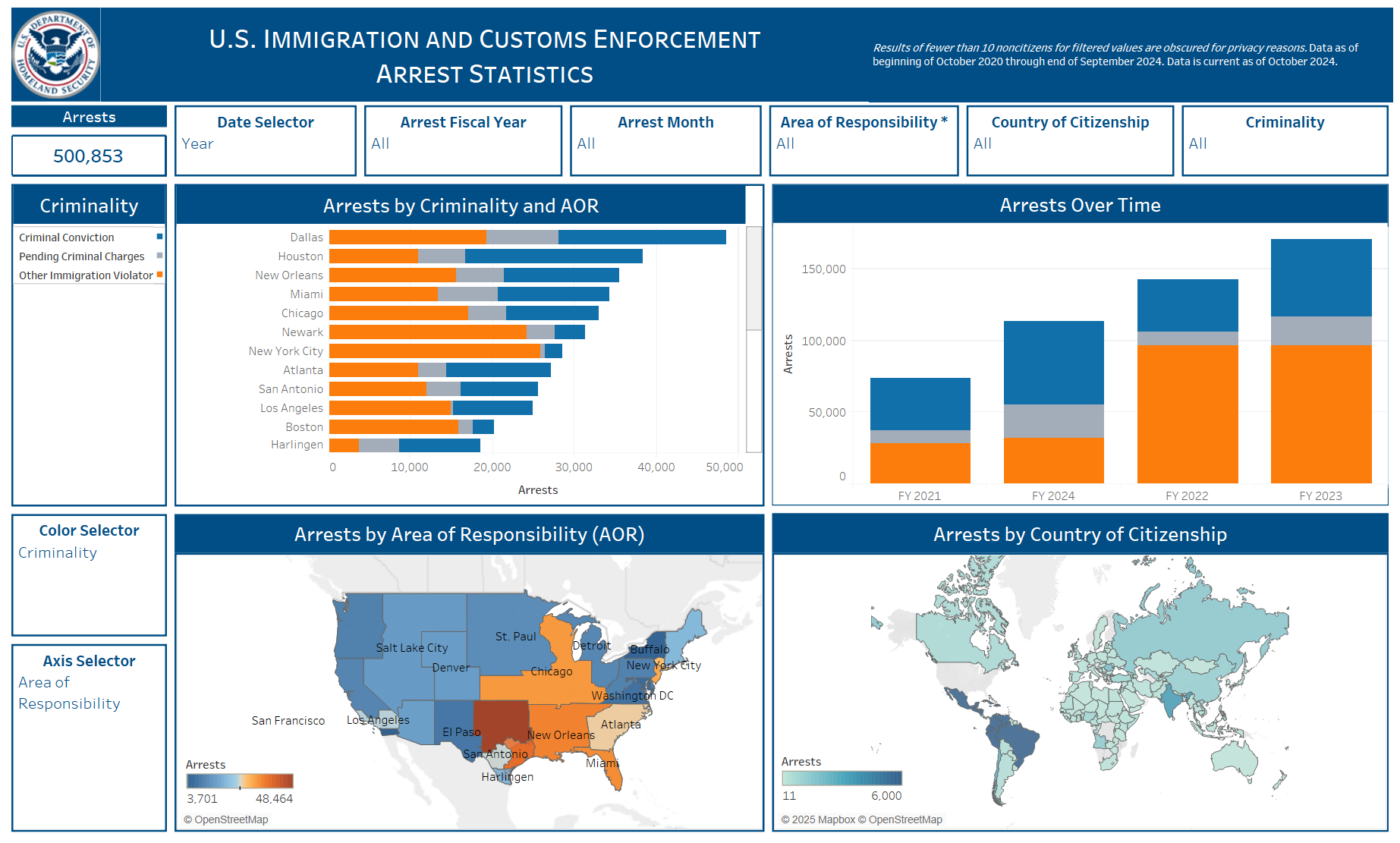Table of Contents
Bulletin Cases
All Individuals Regardless of Immigration Status have Constitutional Rights.
"Aliens, even aliens whose presence in this country is unlawful, have long been recognized as 'persons' guaranteed due process of law by the Fifth and Fourteenth Amendments." See Plyler v. Doe, 457 U.S. 202 (1982)
Immigrants Have the Right to Due Process.
The Supreme Court held that as a permanent resident, an individual is protected by the Fifth Amendment and entitled to notice of the charges against him or hear and that a hearing is needed to meet due process requirements. See Kwong Hai Chew v. Colding, 344 U.S. 590
The Right to Retain Legal Counsel.
The right to due process extends the right to retain legal representation in immigration proceedings. Unlike criminal proceedings, however, such legal counsel will not be provided by the government. See Usubakunov v. Garland, 16 F.4th 1299 ("noncitizens have the right to counsel in removal proceedings, albeit not the right to counsel paid for by the government")
The Right to Receive Notice of Hearings.
Individuals that are in deportation proceedings have the right to receive actual or constructive notice of such proceedings. See Andia v. Ashcroft, 359 F.3d 1181 (The 9th Circuit Court of Appeals held that individuals that did not receive actual or constructive notice of deportation proceedings, it would be a violation of their rights under the Fifth Amendment of the Constitution to deport them in absentia.)
Some Courts interpreted the constructive notice differently.
- In Romero-Ramirez v. Barr, the Fifth Circuit Court of Appeals held that the failure to receive actual notice of proceedings is not a valid excuse for the failure to appear in the hearing. See Romero-Ramirez v. Barr 766 Fed. Appx. 168 ("An alien has a reasonable opportunity to attend his deportation hearing even if he does not receive actual notice when the failure to receive notice is a result of his moving without complying with his statutory and regulatory duty to update his address with immigration officials").
The Right to Remain Silent Still Applies.
While immigration arrests and detentions are civil in nature, immigration officers cannot avoid Miranda's requirements "simply by labeling immigration inquiries as 'civil' or 'administrative.'" When law enforcement officers know or reasonably should have known that the questions they ask are likely to elicit incriminating responses, Miranda warnings still apply. See United States v. Pacheco-Alvarez, 227 F. Supp. 3d 863.
Immigration Judges are Not Required to Advise Your Right to Remain Silent
Immigration Judges need not advise or even notify an illegal immigrant their right to remain silent at a hearing. See United States v. Valdez, 917 F.2d 466 (10th Circuit Court of Appeals ruled that there was no provision in the statute that required the immigration law judge to advise appellant of his right to remain silent during deportation hearings.)
State or Local Law Enforcement Cannot Enforce Federal Immigration Laws.
New York statutes do not authorize state and local law enforcement to enforce warrantless arrests for immigration law violations as these violations are inherently civil, administrative, and federal-level violations. See People ex rel. Wells v DeMarco, 168 A.D.3d 31 (N.Y.2d) 2018
An Immigration Arrest Warrant Alone Is Not Sufficient to Enter a Private Home.
Immigration arrest warrants are inherently civil and administrative in nature. See Abel v. United States, 362 U.S. 217.
These warrants differ than judicial warrants because immigration administrative warrants do not need an independent judge to authorize the warrant. Often, these warrants are signed by immigration (executive) officials themselves. See Gonzalez v. U.S. Immigration & Customs Enf’t, 975 F.3d 788
As such, immigration arrest warrants cannot be used to enter a private home. See Kidd v. Mayorkas, 734 F. Supp. 3d 967 ("This is also consistent with ICE training materials, which affirm 'that administrative warrants do not authorize entry into a dwelling without consent.')
"Knock-and-Talk" Practices
The practice, Knock-and-Talk, is a law enforcement practice and tactic used by ICE and DHS to elicit consent to a search of a home or to initiate a civil arrest of a person of interest. In May 2024, a federal district court in California struck down the practice, holding the tactic "unconstitutional" and "unlawful". See Kidd v. Mayorkas, 734 F. Supp. 3d 967 (U.S. District Court for the Central District of California, 2024)
Individuals Born in the United States are Citizens Regardless of the Immigration Status of their Parents.
"Congress having no power to abridge the rights conferred by the Constitution upon those who have become naturalized citizens by virtue of acts of Congress, a fortiori no act or omission of Congress, as to providing for the naturalization of parents or children of a particular race, can affect citizenship acquired as a birthright, by virtue of the Constitution itself, without any aid of legislation." See United States v. Wong Kim Ark, 169 U.S. 649
A Minor Offense is Not Automatic Grounds for Deportation.
The Supreme Court held that a conviction of a minor drug offense is not an automatic grounds for deportation of a legal immigrant. See Carachuri-Rosendo v. Holder, 560 U.S. 563
Exceptional Circumstances for Failure to Appear at a Hearing.
There are certain exceptional circumstances beyond an individual’s control that can reverse orders of deportation. See Toro-Toro v. Attorney General of the United States, 135 Fed. Appx. 558 (An immigration judge may rescind an order of deportation, in absentia, due to exceptional circumstances defined as serious illness of the alien or death of an immediate relative of the alien, but not including less compelling circumstances beyond the control of the alien).
- There is no list of the number of exceptional circumstances as such circumstances are "unique" and must be reviewed on the "totality of the circumstances". See Varinder Singh v. Garland, 117 F.4th 1145
The Right to Have an Interpreter.
Courts have affirmed an individual’s due process right to an interpreter since “... absent an interpreter, a non-English speaker’s ability to participate in the hearing and her due process right to a meaningful opportunity to be heard are essentially meaningless.”
See Ugochukwu v. Gonzales, 191 Fed. Appx. 484 citing Nazarova v. INS, 171 F.3d 478. (the inability to attend due to her interpreter's absence, in conjunction with inconsistent advice given regarding the availability of government interpreters at deportation hearings, were beyond petitioner's control and had deprived her of the due process guarantee of a meaningful opportunity to be heard.)
Informational Videos
Other Resources
Statistics

Know-Your-Rights Red Cards | Tarjetas Rojas | 红卡片
Created by the Immigration Legal Resource Center (ILRC)
Print HereIntroduction to Immigration Law
Who is Subject to Immigration Removal?
Noncitizens. Individuals with United States citizenship whether through birthright citizenship or citizenship through naturalization should not face consequences of deportation or other immigration-related procedures.
Arrest and Custody
An individual may be detained by ICE officials with or without a warrant. ICE officials must determine whether to charge the individual-defendant within 48 hours. There are exceptions to the 48-hour deadline such as emergency or other extraordinary circumstances where ICE officials need more time to make a determination. See 8 CFR § 287.3 (Disposition of cases of aliens arrested without warrant.)
Glossary
Terms
A
Adjustment of Status: The process by which an eligible individual already in the United States can apply for lawful permanent resident status (green card) without having to return to their home country.
Advance Parole: A travel document issued by USCIS that allows certain immigrants who are in the process of adjusting their status to travel outside the United States and return without abandoning their pending application.
Affidavit of Support: A legally enforceable contract required for most family-based and some employment-based immigrants, in which a sponsor promises to financially support the immigrant if necessary.
Alien - For immigration purposes, an "alien" is synonymous with "non-citizen".
Asylee: A person who has been granted asylum in the United States because they have demonstrated a well-founded fear of persecution in their home country.
B
Beneficiary: The person who will receive an immigration benefit, such as a visa or green card, through a petition filed by someone else.
Biometrics: The collection of fingerprints, photographs, and/or signatures used by USCIS to conduct background checks and produce certain immigration documents.
Border Patrol: The federal law enforcement branch of U.S. Customs and Border Protection (CBP) responsible for detecting and preventing illegal entry of aliens and contraband into the United States.
C
Consular Processing: The method of applying for a visa or immigration benefit through a U.S. consulate or embassy abroad, rather than through USCIS within the United States.
Conditional Permanent Resident: A person who receives a green card valid for two years, typically through marriage to a U.S. citizen or through certain investor programs.
Credible Fear Interview: A screening interview conducted by an asylum officer to determine if an individual who has expressed fear of returning to their home country has a credible fear of persecution or torture.
D
Deportation: The formal removal of a non-citizen from the United States when they have been found removable for violating immigration laws. (Now generally referred to as "removal").
Diversity Visa Program (DV Lottery): An annual program that makes up to 55,000 immigrant visas available through a random selection process to people from countries with historically low rates of immigration to the United States.
Deferred Action for Childhood Arrivals (DACA): A policy implemented in 2012 that allows certain individuals who came to the United States as children to receive a renewable two-year period of deferred action from deportation and work authorization.
E
Employment Authorization Document (EAD): An identification card issued by USCIS that proves an individual is authorized to work in the United States.
Executive Office for Immigration Review (EOIR): The agency within the Department of Justice that houses the immigration courts and the Board of Immigration Appeals.
Expedited Removal: A process that allows immigration officers to order the removal of certain non-citizens without a hearing before an immigration judge.
F
Family-Based Immigration: The process by which U.S. citizens and lawful permanent residents can petition for certain family members to immigrate to the United States.
Fiancé(e) Visa (K-1): A visa that allows the foreign-citizen fiancé(e) of a U.S. citizen to travel to the United States to marry their U.S. citizen sponsor within 90 days of arrival.
Form I-485: The application used to apply for lawful permanent resident status (a green card) while in the United States.
G
Green Card: The common name for a Permanent Resident Card, which identifies an individual as a lawful permanent resident with authorization to live and work in the United States permanently.
Green Card Through Marriage: The process by which a foreign national can obtain permanent residency through marriage to a U.S. citizen or permanent resident.
Good Moral Character: A requirement for certain immigration benefits, particularly naturalization, indicating that the applicant has behaved in accordance with the moral standards of the average citizen.
H
H-1B Visa: A nonimmigrant visa that allows U.S. employers to temporarily employ foreign workers in specialty occupations requiring theoretical or technical expertise.
Humanitarian Parole: A temporary status allowing an individual who is otherwise inadmissible to enter the United States for urgent humanitarian reasons or significant public benefit.
I
Immigrant Visa: A visa issued to a person who intends to live permanently in the United States.
Immigration Judge: A Department of Justice attorney appointed by the Attorney General to conduct removal proceedings in immigration court.
Immigration and Nationality Act (INA): The primary federal law governing immigration and citizenship in the United States.
J
J-1 Visa: A nonimmigrant visa for individuals approved to participate in work-and study-based exchange visitor programs.
Jurisdiction: The legal authority of a court or administrative body to hear and decide on certain types of cases.
K
K Visa: A nonimmigrant visa category that includes K-1 visas for fiancé(e)s, K-2 visas for children of K-1 visa holders, K-3 visas for spouses, and K-4 visas for children of K-3 visa holders.
L
Lawful Permanent Resident (LPR): A non-citizen who has been granted authorization to live and work in the United States on a permanent basis.
Labor Certification: A determination by the Department of Labor that there are insufficient U.S. workers able, willing, qualified, and available to accept a job, and that employment of a foreign worker will not adversely affect the wages and working conditions of similarly employed U.S. workers.
M
Motion to Reopen: A request to an immigration judge or the Board of Immigration Appeals to reopen a case based on new facts that were not available at the original hearing.
Motion to Reconsider: A request asking an immigration judge or the Board of Immigration Appeals to reconsider a decision based on incorrect application of law or policy.
N
Naturalization: The process by which a lawful permanent resident becomes a U.S. citizen.
National Visa Center (NVC): The U.S. Department of State facility that processes visa cases after they are approved by USCIS and before they are sent to a U.S. consulate or embassy.
Nonimmigrant Visa: A visa issued to a person with permanent residence outside the United States but who wishes to visit the U.S. temporarily for tourism, medical treatment, business, temporary work, or study.
O
Optional Practical Training (OPT): A period during which undergraduate and graduate students with F-1 status who have completed or have been pursuing their degrees for more than nine months are permitted to work for up to 12 months (and potentially longer for certain STEM degrees) in an area directly related to their major area of study.
Overstay: Remaining in the United States beyond the period of authorized stay, which can result in immigration consequences including bars to re-entry.
P
Parole in Place (PIP): A discretionary decision by USCIS to grant parole to individuals who are physically present in the United States without having been admitted or paroled.
Permanent Resident Card (PRC): Official name for a Green Card, documenting an individual's status as a lawful permanent resident.
Priority Date: The date when a visa petition or labor certification is properly filed, establishing a person's place in line for an immigrant visa number.
Q
Quota: The limited number of immigrant visas available each year in certain visa categories.
R
Refugee: A person who has been forced to flee their country because of persecution, war, or violence and has a well-founded fear of persecution for reasons of race, religion, nationality, political opinion, or membership in a particular social group.
Removal Proceedings: The legal process to determine if a non-citizen can be removed (deported) from the United States.
Request for Evidence (RFE): A notice sent by USCIS requesting additional information or documentation to help adjudicate an application or petition.
S
Special Immigrant Juvenile Status (SIJS): A classification that provides certain children who have been abused, abandoned, or neglected by one or both parents with the ability to apply for lawful permanent resident status.
Specialty Occupation: For H-1B visa purposes, an occupation that requires theoretical and practical application of a body of specialized knowledge and attainment of a bachelor's or higher degree in the specific specialty.
Sponsor: A person who files an immigrant visa petition on behalf of a prospective immigrant or who executes an affidavit of support for a beneficiary.
T
Temporary Protected Status (TPS): A temporary immigration status granted to nationals of designated countries experiencing problems that make it difficult or unsafe for their nationals to return.
T Visa: A nonimmigrant visa allowing certain victims of human trafficking and immediate family members to remain and work temporarily in the United States, typically if they agree to assist law enforcement in the investigation or prosecution of trafficking activity.
U
U Visa: A nonimmigrant visa for victims of certain crimes who have suffered mental or physical abuse and are helpful to law enforcement in the investigation or prosecution of criminal activity.
Undocumented non-citizen - An individual that currently resides in the United States with no legal status. Examples include individuals who may have overstayed their visa in the United States or individuals who evaded an immigration port of entry.
USCIS (U.S. Citizenship and Immigration Services): The federal agency within the Department of Homeland Security that administers the country's naturalization and immigration system.
V
Visa: An endorsement placed in a passport that grants the holder official permission to enter, leave, or stay in a country for a specified time period.
Visa Bulletin: A monthly publication issued by the U.S. Department of State that shows the availability of immigrant visa numbers for different categories and countries.
Visa Waiver Program (VWP): A program allowing citizens of specific countries to travel to the United States for tourism or business for stays of 90 days or less without obtaining a visa.
W
Waiver: A form of forgiveness or exemption from certain grounds of inadmissibility or removability, allowing an otherwise ineligible individual to enter or remain in the United States.
Work Authorization: Legal permission to work in the United States, typically in the form of an Employment Authorization Document (EAD).
Z
212(i) Waiver: A waiver for fraud or misrepresentation that may be granted if the applicant can demonstrate that refusal of admission would result in extreme hardship to a qualifying U.S. citizen or lawful permanent resident relative.
245(i) Adjustment: A provision that allows certain individuals who entered without inspection or otherwise violated their status to adjust to permanent resident status upon payment of a penalty fee if they are the beneficiary of a visa petition or labor certification filed on or before April 30, 2001.

